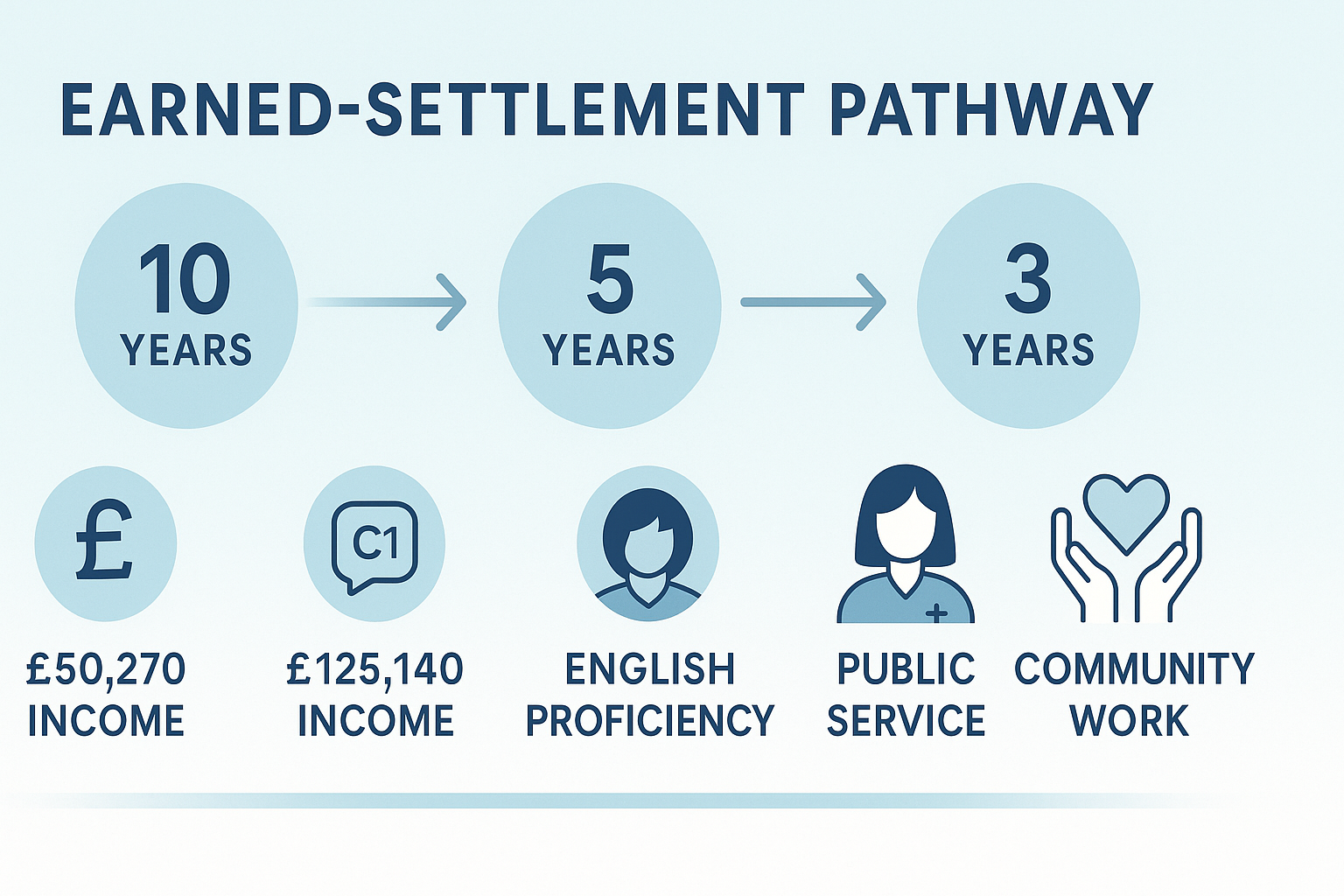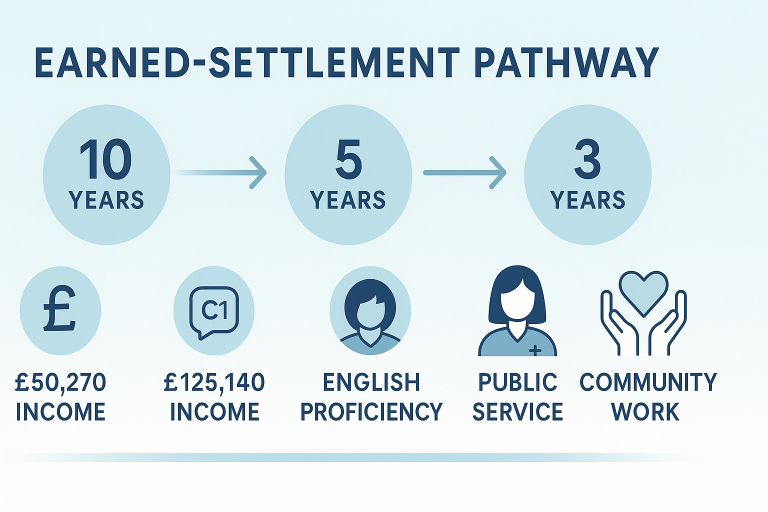
The UK government is looking to change its residency pathway, rewarding high earners with an expedited route to settlement.
Individuals earning over £125,140 could qualify for permanent residency in just three years—slashing the previous five- or ten-year benchmarks.
Key elements of the new “earned settlement” approach
- £125,140+ income: Earn this threshold for three consecutive years, and you can apply for indefinite leave to remain after three years, a significant acceleration from the current five-year minimum.
- £50,270+ income: A four-year reduction is available for those in this bracket, with a requirement of three years of verifiable income, reducing the timeline from ten to five years.
- Below £50,270: No income-based shortcut applies; the baseline remains at ten years, though additional pathways may shorten this period.
Additional acceleration routes for high-profile applicants
- English language proficiency: Achieving C1 level English can shave off one year from the residency timeline when combined with other criteria.
- Public service workers: Medical and public sector professionals such as NHS doctors, nurses, and teachers working over five years could qualify for five-year accelerated settlement.
- Community volunteers: Significant volunteer, community service, and charity work might reduce the process by three to five years, though specifics remain under consultation.
Non-negotiable requirements
All applicants, regardless of income, must demonstrate B2-level English, pass the Life in the UK test, maintain a debt-free status, and have a clean criminal record.
The government emphasises character and integration as fundamental to permanent settlement eligibility.
Broader implications
The current backlog is expected to peak in 2028 with approximately 450,000 applications, making timing crucial for high-earners considering settlement plans.
This overhaul signals a shift toward a merit-based, contribution-focused immigration system designed to retain skilled professionals and incentivize economic and social integration.
The post Explained: UK’s accelerated settlement route appeared first on Invezz

